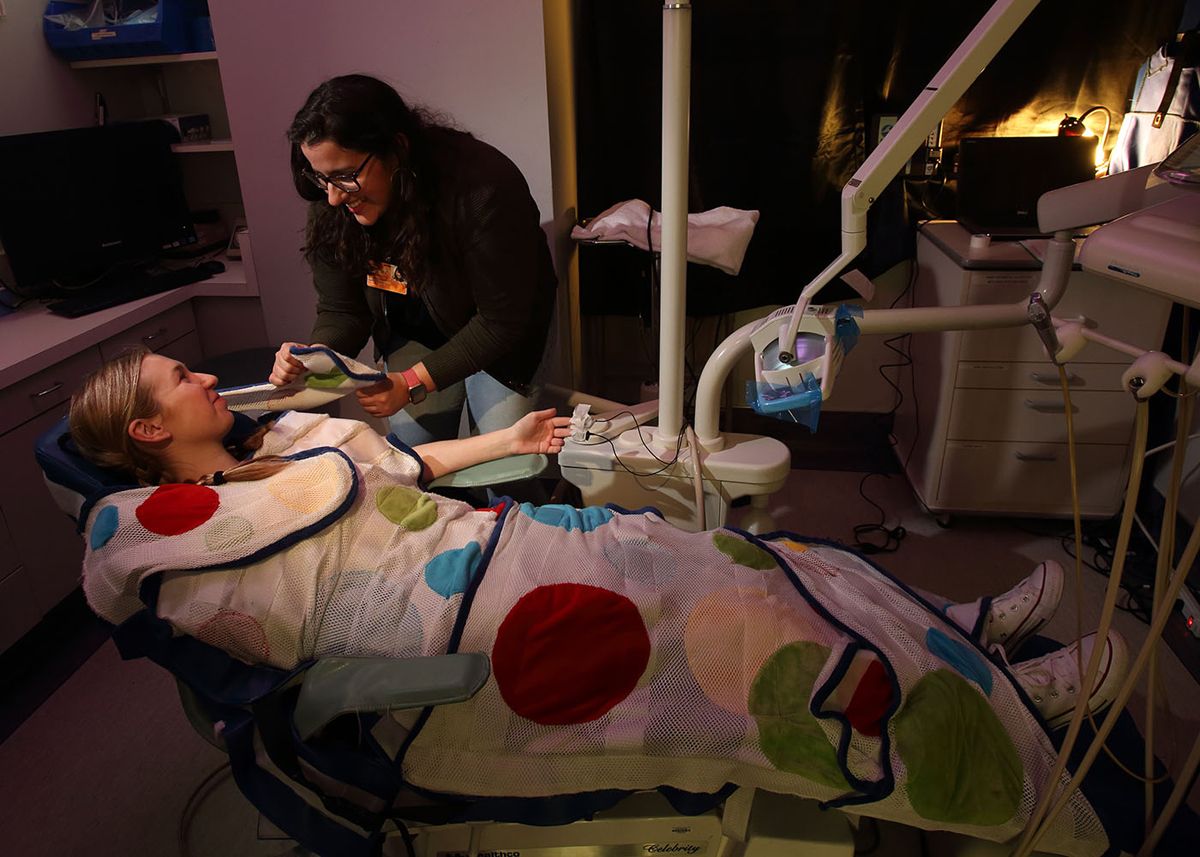Study Shows Sensory-Adapted Dental Clinics Reduce Stress for Autistic Pediatric Patients
This new study from the University of Southern California demonstrates that dental clinics that make small sensory adaptations in the treatment room are better equipped to care for autistic pediatric patients.
Study Shows Sensor-Adapted Dental Clinics Reduce Stress for Autistic Pediatric Patients. Image: © University of Southern California

A new study from the University of Southern California (USC) has demonstrated that dental clinics that use visual, auditory, and tactile adaptations, reduce stress for pediatric autistic patients. This study, which was done by researchers at Children’s Hospital Los Angeles, gave dental cleanings to autistic children in both standard clinics and adapted settings. These adapted settings included blackout curtains, a slow-motion visual effect which was either an underwater scene or abstract colors, nature sounds and quiet piano music, and a butterfly wrap to provide children with a hugging sensation.
Results were measured using electrodes placed on the child’s fingers to measure electrodermal activity which provide a physiological measurement of the fight-or-flight response in the brain. Researchers also measured results through observation of distressed behaviors like crying, biting, and clamping down.
The quality of care between the control environment and the adapted environment was the same. Children entering the adapted environment had decreased stress levels even before treatment, according to lead study author Leadh Stein Duker, assistant professor at the USC Chan Division of Occupational Science and Occupational Therapy.
“So many interventions try to change the person,” Stein Duker says in a press release from USC. “Instead, this intervention sees children for who they are–it does not try to fix or change them–focusing the intervention to modify problematic environmental factors as a way to empower the child and family to engage successfully in occupation.”
This study was done to address the reality that autistic children are often presented with unique, sensory challenges at the dental office, which can be a barrier to care. Stein Duker and Sensory Adapted Dental Environments (SADE) aims to find new ways to eliminate these barriers to boost efficacy of dental care for this patient population.
“Because it’s a fully-powered study, we were able to identify some other very exciting things,” Stein Duker says. “For example, our data showed that children’s physiological stress dropped as soon as they entered the adapted dental cleaning room before the actual cleaning even began, and that level of physiological stress predicted behavioral distress during the cleaning.”
Published as open-access in JAMA Network Open, this study also aims to help close an ethnic disparity gap, with 72% of parents of the children enrolled self-identifying as Hispanic. To ensure fidelity, the SADE research team had bilingual members to communicate with participants and families.
The research team hopes to expand in the future by implementing SADE studies for typically developing children with dental fear and anxiety, and, eventually, researching preliminary data for adults with intellectual developmental disabilities and/or autism.
“Regardless of population, my advice to dental professionals and parents alike is to work together to find ways to improve the overall clinic experience,” Stein Duker says in the press release. “There are weighted x-ray bibs in every single dental office that may help calm the child; they can wear sunglasses; they can wear a beanie hat covering the ears to muffle noises–all of these are completely free and easy adaptations that have the potential to improve the clinic experience for those with sensory sensitivities, without negatively impacting dentists’ ability to provide care.”